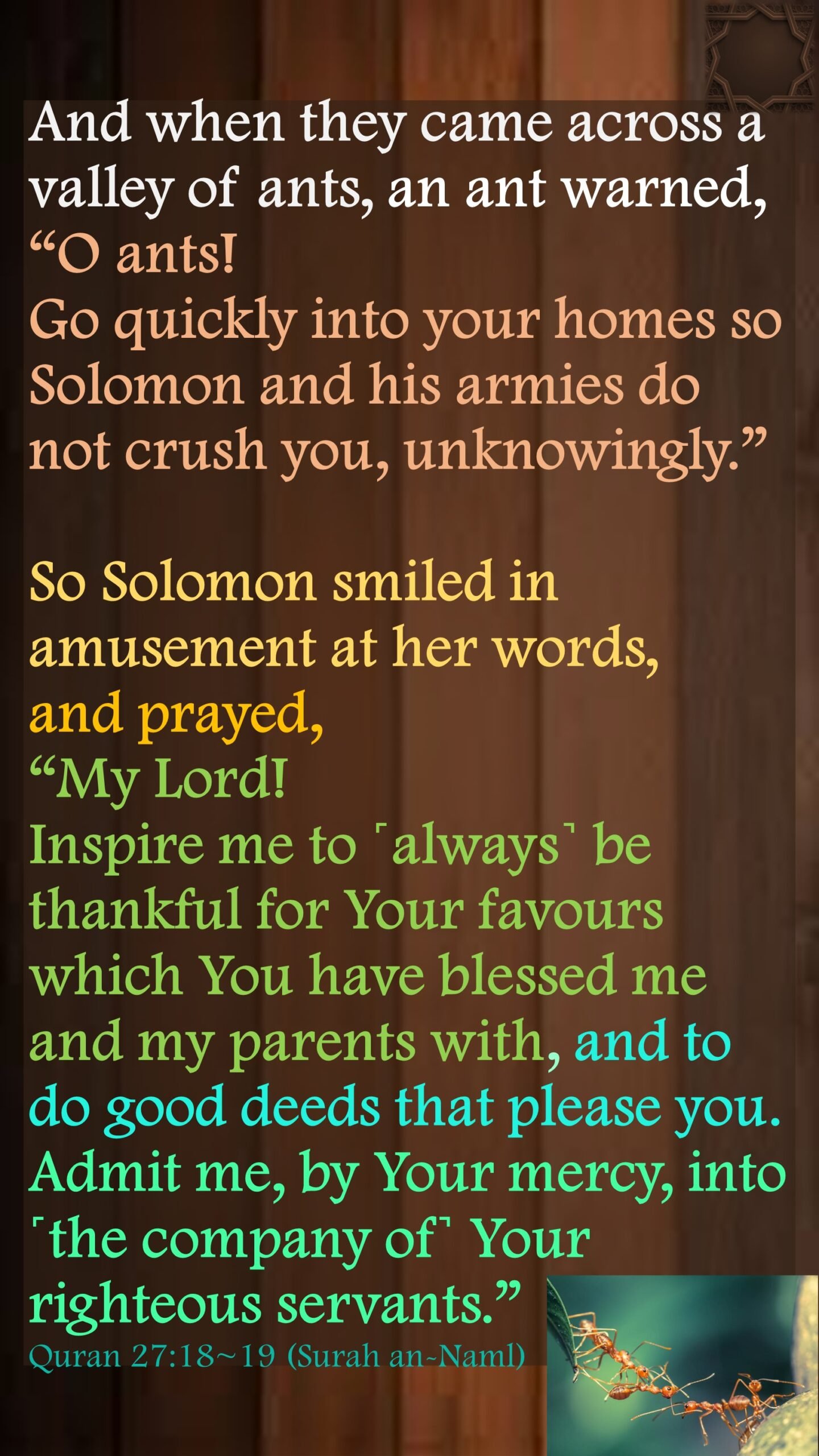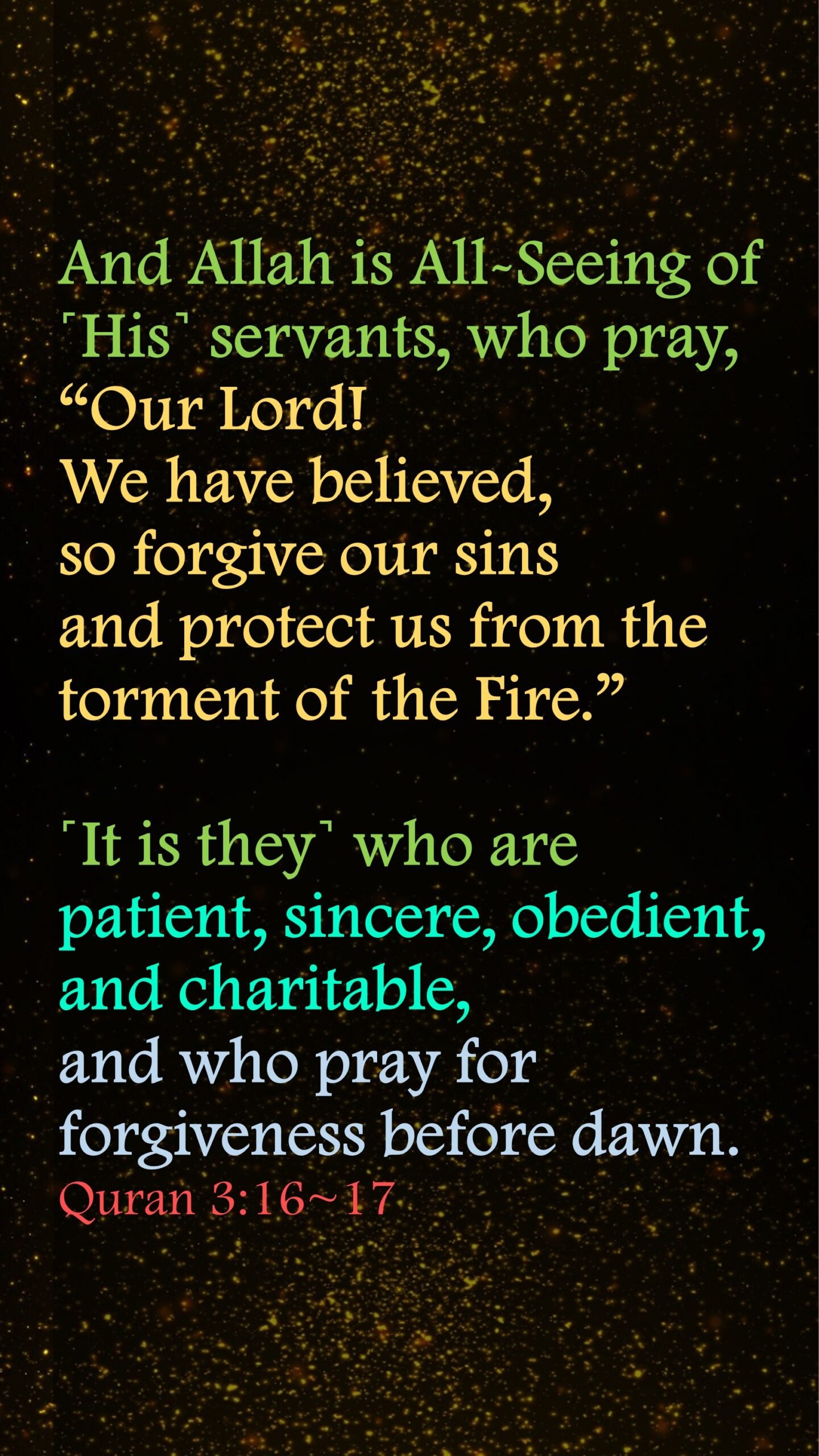Skip to Content
Tag Archives: servants
- Home -
- Posts tagged "servants"
10
Dec, 2025
Hadees, Islam
11/126, 4/208, 5050, 6320, Abi-Dawud, Allah, awaken, bukhari, daily, general behavior, hadees, hadith, inspirations, islam, islamic, kitab al-adab, lie, Mercy, Muhammad, Muslim, name, O Allah, protect, returnkeep, righteous, servants, Soul
7
Apr, 2023
Islam, Quran
admit, Allah, always, an-Naml, ant, army, ayat, Blessed, Chapter 27, company, crush, daily, deeds, favor, grateful, inspirations, inspire, islam, islamic, Jannat, Mercy, paradise, PBUH, please, prayer, Prophet, quran, righteous, servants, smile, Solomon, Surah, thankful, Verse 18, verse 19, you
7
Nov, 2022
Islam, Quran
Allah, ayat, chapter 3, daily, day, deeds, far, good, Gracious, Himself, inspirations, islam, islamic, misdeeds, off, presented, quran, servants, Soul, Surah, verse 30, warn, watch, wish
30
Oct, 2022
Islam, Quran
All-Seeing, Allah, ayat, before, believe, chapter 3, charitable, daily, dawn, fire, forgive, forgiveness, inspirations, islam, islamic, Lord, obedient, patient, pray, prayer, protect, quran, servants, sins, Surah, Tahajjud, torment, verse 16, verse 17
10
Jul, 2022
Islam, Quran
all, All-Seeing, Allah, ayat, before, believe, better, chapter 3, charitable, daily, dawn, fire, forever, forgive, forgiveness, Gardens, Heaven, hell, inspirations, islam, islamic, Lord, mindful, obedient, patient, PBUH, pleasure, pray, prayer, Prophet, protect, quran, rivers, SAWW, servants, sincere, spouses, Surah, Tahajjud, verses 15 to 17





